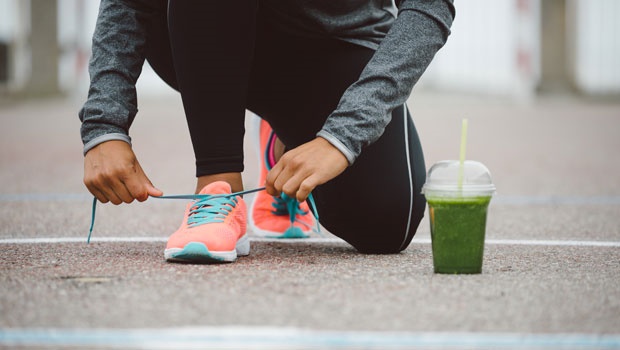
We all know too much of a good thing often turns bad. But what if your healthy habits have unrelated negative side effects?
Drinking lemon water
The benefits
A lot of people swear by the health benefits of drinking a cup of lemon water first thing in the morning. And while not all of the miracle claims are supported by science, a cup of lemon water a day does indeed seem to support healthy living.
Apparently fresh lemon juice in water aids digestion, provides vitamins and minerals, prevents the growth of pathogenic bacteria, relieves mild heart burn and helps prevent kidney stones.
The downside
The acid in lemon juice eats away at the enamel on your teeth. This can lead to discolouration, sensitivity, increased susceptibility to decay, and – ultimately – tooth fracturing. And unfortunately, despite what you have read on the internet: you cannot grow back enamel.
Getting around it
• For one, it might help to mix the lemon juice in lukewarm water instead of hot water.
According to Dr. Sarah Solomon, the rate of chemical reactions increase with temperature, so if you drink lukewarm lemon water as opposed to hot lemon water it will already lessen the adverse effect.
• Cape Town dentist Dr Frank Winter also suggests that you rinse your mouth out with water immediately after drinking lemon water. This will get rid of any residue that will sit and eat away at your teeth.
• Dr Winter also suggests that you refrain from brushing your teeth until at least 15 minutes after you’ve had lemon water. In fact, this counts for other high acidity drinks like sodas and wine too. The best news? Dr Winter says eating a small piece of cheese instead will go a long way to neutralise the acid and protect your teeth.
Read more: Top 20 nutrient-dense foods (and the truth about superfoods)
Consumption of avocado, quinoa and coconut oil and water
The benefits
Avocado and coconut products are high in nutrients and healthy fats. Unless you have a medical condition that prevents this, eating healthy fats provides energy and promotes general well-being and good health.
Coconut water is also rich in electrolytes and works great as a low cal post workout drink. Quinoa is a healthy, complex carbohydrate alternative grain that is high in both fibre and protein and praised for its high nutrient value.
The downside
Unfortunately, worldwide consumption of these foods are having a negative effect on our carbon footprints. As a rule, eating imported, non-seasonal food is usually a Bad Thing.
According to the World Watch Institute, food transportation is quickly becoming one of the biggest sources of greenhouse gas emissions.
And once a specific food type becomes so massively popular, farmers and corporations often don’t care what they sacrifice in order to meet the huge demands. And flying huge quantities of food over oceans so that hipsters in Cape Town can munch grains farmed in the Andes is not ideal for carbon emissions.
In Britain and the US, a lot of avos are imported from Mexico where these farms are often controlled by ruthless drug cartels. So much so, The Telegraph reports that the term “Blood Guacomole” is now being used.
Not to mention how the high demand for avocado is driving deforestation. Same goes for coconuts. Since coconuts only grow in tropical areas, you can expect that those areas will now be completely exhausted to meet a worldwide demand for coconut oil and coconut water which has become massively trendy.
Getting around it
• The first thing to do is to stop eating food that is out of season. We are lucky enough in SA that our climate allows for avo farming so that fresh, local avo is available and in season for almost half of the year. When it isn’t, just replace it with something else. There is no excuse to buy imported avocados. (No, not even from Kenya).
• Choose ethical sources for the food that can’t be farmed here. Make sure your coconut oil is Fair Trade – this will ensure that the poor farm worker risking his very life harvesting coconuts from up a 20 metre tree won’t get paid R30 per day.
• Buy organic. Organically certified foods are less likely to adversely affect the local environment and people who farm the products.
Exercising outdoors
The benefits
I am not going to list the benefits of exercise here, because it will take too long. Suffice to say exercise improves cardiovascular, bone, joint, muscle, digestive, mental, and sexual health. And exercising outdoors gives the added bonus to commune with nature, get fresh air and explore your surroundings.
The downside
I could mention crime and road accidents here, but frankly, your chances of getting mugged in the Crossfit studio’s parking lot, or getting into an accident on your way to the gym is probably just as likely as getting into some sort of scrap outside.
No, the real drawback of training outside is exposure to the sun. Don’t roll your eyes – according to CANSA, South Africa has the second highest rate of skin cancer in the world (only Australia beats us).
So while a bit of sunlight allows your body to produce vitamin D and is good for your mood and general well-being, prolonged exposure – especially during the peak hours of the day – can literally be deadly.
It can also cause cataracts, wrinkles, dark spots, sagging and pigmentation – all which ages you prematurely.
Getting around it
• Try to stay indoors between 11am and 3pm. This is the time when the South African sun is at its most dangerous. You can get all the benefits of the outdoors in the early morning and late afternoon.
• Always have sunscreen on hand. Especially if you know you’re going to be in the sun for a long time because you’re taking part in a race or a game of sports.
• Invest in UVA and UVB blocking sunglasses to protect your eyes. Blue-eyed people are especially vulnerable, but the sun can damage green and brown eyes too.
• Make sure you have a proper hat with a brim – caps protect just a small part of your face, leaving the back of the neck and ears vulnerable.




 Publications
Publications
 Partners
Partners











